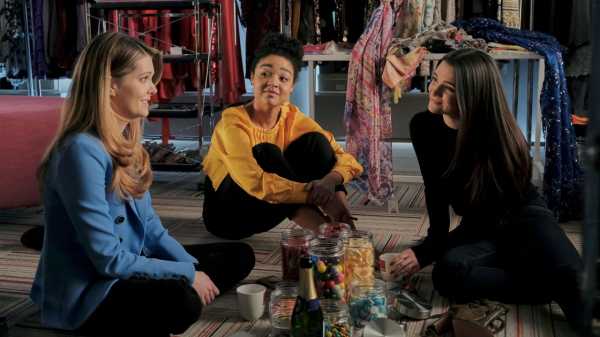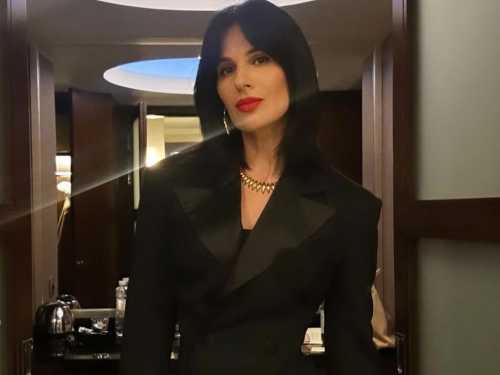
Like a proud horse bucking insensitive riders, “The Bold Type” (airing Tuesdays, on Freeform) has charged into its second season rejecting viewers who had settled an ironic gaze upon it. At its début, the series, set at a Cosmopolitan-like publication called Scarlet, seemed to deserve a place in the camp pantheon of TV fictions about glossy magazines. The category includes “Suddenly Susan,” “Dirt,” and the MTV reality show “I’m from Rolling Stone,” which ranks as a fantasy on account of positing a world in which a New York-based magazine might fly an intern to Toronto to report a two-paragraph blog post.
On “The Bold Type,” meanwhile, Toronto stands in for New York City. Though many U.S.-set series shoot in Canada, few do so with the touching ungainliness of this one. The accents of actors in bit parts—“There are so many stories aboot orgasms,” an uncomprehending board member says, of Scarlet’s content—contribute an artificiality that heightens the show’s potential as a diverting goof. But the bad news, for spectators inclined to find entertainment value in that awkwardness, is that “The Bold Type” has nonetheless developed into a thoughtful show. It translates the young adulthood of These Kids Today, with their juice smoothies and their social-justice instincts, into unpatronizing playlets expressly designed for teens and intermittently delightful to oldsters.
When the three young women at its center convene to discuss the substance of their twentysomething lives, they prefer to be surrounded by clothing, a habit picked up when they would gather in Scarlet’s fashion closet. But any collection of duds will suffice; last week, the trio, attending the sort of flashbulb-strobed media event that is a hallmark of this subgenre, cordially displaced a coat-check attendant from her station. And, in the evenings, gathered in their satisfying overlarge apartments, they drink wine from goblets with the ritual air of people taking communion.
The plot treats all the issues of the day, ripping them straight from the hashtags and massaging them into coherency. Sutton (Meghann Fahy), a fashion stylist, has been puzzling her way through an off-and-on romance with an older man in the office. Though the fellow is the general counsel at Scarlet’s publisher, he has a way of popping up in editorial meetings and contributing opinions, like a Mr. Big without a portfolio. Last week, he announced a new policy on interoffice relationships that would allow them to legitimize their relationship by submitting their romance to H.R. for approval. Meanwhile, Sutton endures the slut-shaming of colleagues who believe that she is attempting to fling herself up the career ladder. This is, miraculously, carried off with a light touch, given the heavy hand demanded by the genre.
“The Bold Type” shows great patience in sorting through sensitive subjects at a steady pace. Consider the challenges facing Kat (Aisha Dee), a social-media specialist. Awarded a promotion, this biracial woman dithers in writing an online biography to accompany her new job title because she is reluctant to identify herself as Scarlet’s first black department head. The discussions about her identity, and the politics of it, illustrate contrasting perspectives in the gentlest way. Elsewhere, Kat and her girlfriend, Adena, who identifies herself as a Muslim feminist, weather a dispute about Kat’s uninterest in performing oral sex, a matter handled with neither preachiness nor prurience.
The third protagonist is Jane (Katie Stevens), who left Scarlet for Incite, an online magazine run by a woman whose coffee mug features a set of brass knuckles in place of a handle. The boss threatens to wallop Jane with it after the writer submits a piece that puts a sunny spin on the troubles of a feminine-hygiene startup. (Its founder isn’t living up to her advertised promise of donating menstrual cups to homeless shelters.) “I wanna lift women up, not tear them down!” Jane pleads, announcing a hesitancy to rake muck, and indicating a sense of decency that she may need to overcome if she wants to get anywhere. But it warms a jaded heart to see her earnestness validated. I came to this show to hoot at the motifs of its subgenre—the sham glamour of photo shoots, the cornball lines lobbed at pitch meetings—and stayed for its amiable exploration of self-discovery. The uplift of “The Bold Type” is disarming.
Sourse: newyorker.com






